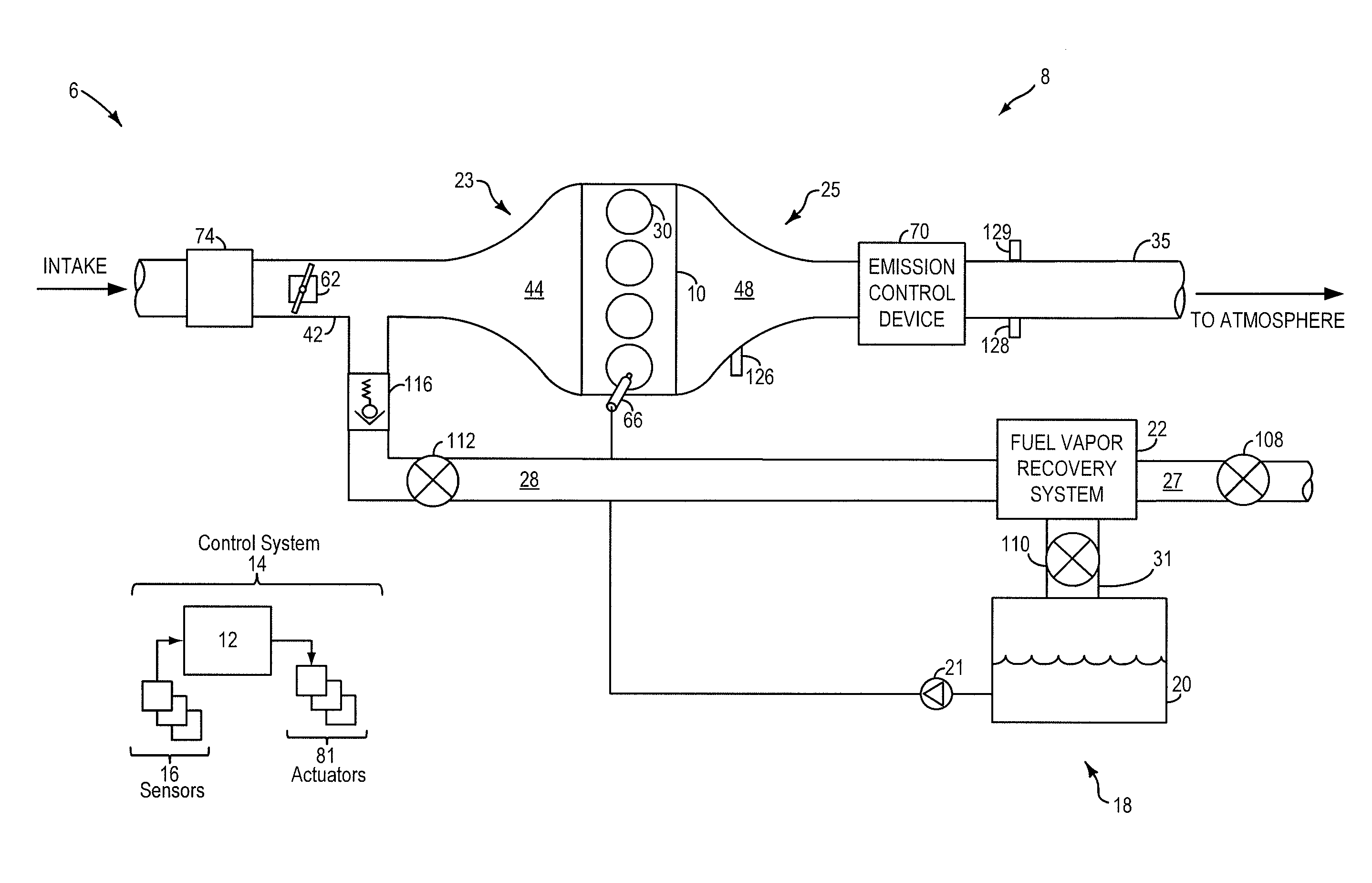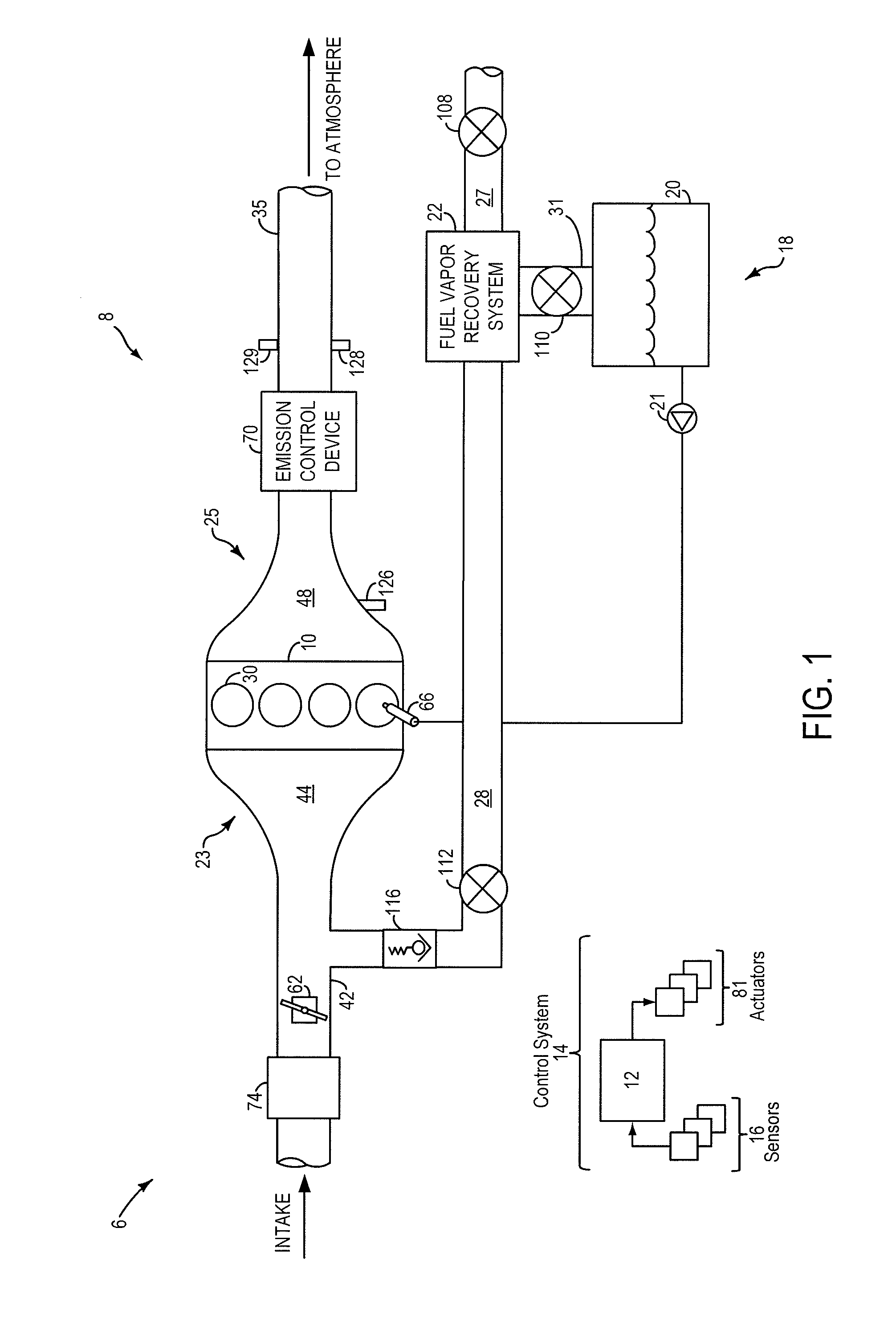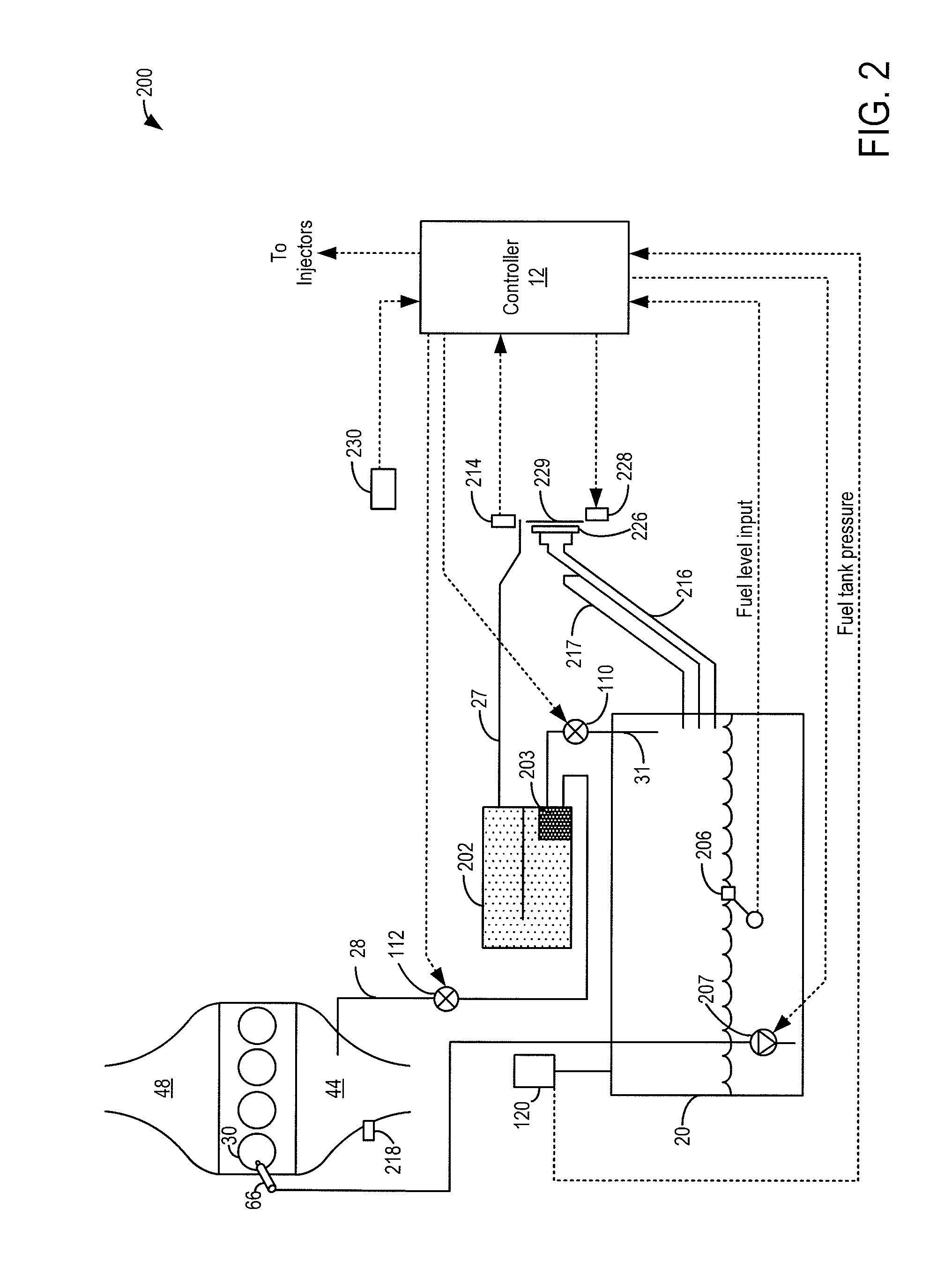Method and System for Fuel Vapor Control
- Summary
- Abstract
- Description
- Claims
- Application Information
AI Technical Summary
Benefits of technology
Problems solved by technology
Method used
Image
Examples
Embodiment Construction
[0017]The following description relates to systems and methods for operating a fuel vapor recovery system, such as the system of FIG. 2, coupled to an engine system, such as the engine system of FIG. 1. During purging conditions, a purge valve may be opened to purge fuel vapors stored in a canister to the engine intake. Following the purging from the canister, a fuel tank isolation valve (FTIV) of the fuel vapor recovery system may be intermittently opened to purge fuel vapors from the fuel tank to a buffer region of the canister over a number of purge pulses. A duration of each purge pulse, as well as an interval between consecutive pulses may be adjusted based on the buffer capacity, purge flow rate, and the fuel tank pressure (e.g., at the onset of the pulsing). An engine controller may be configured to perform control routines, such as those depicted in FIGS. 3-5, to adjust the duration of, and interval between, the pulses and coordinate purging from the canister to the engine i...
PUM
 Login to View More
Login to View More Abstract
Description
Claims
Application Information
 Login to View More
Login to View More - R&D
- Intellectual Property
- Life Sciences
- Materials
- Tech Scout
- Unparalleled Data Quality
- Higher Quality Content
- 60% Fewer Hallucinations
Browse by: Latest US Patents, China's latest patents, Technical Efficacy Thesaurus, Application Domain, Technology Topic, Popular Technical Reports.
© 2025 PatSnap. All rights reserved.Legal|Privacy policy|Modern Slavery Act Transparency Statement|Sitemap|About US| Contact US: help@patsnap.com



